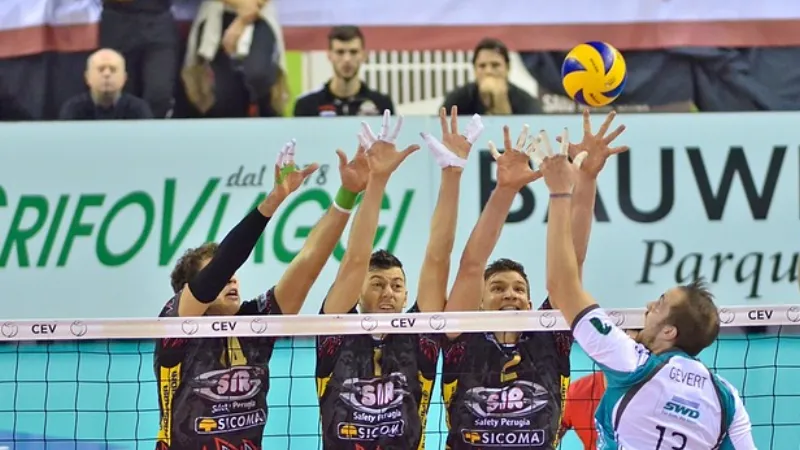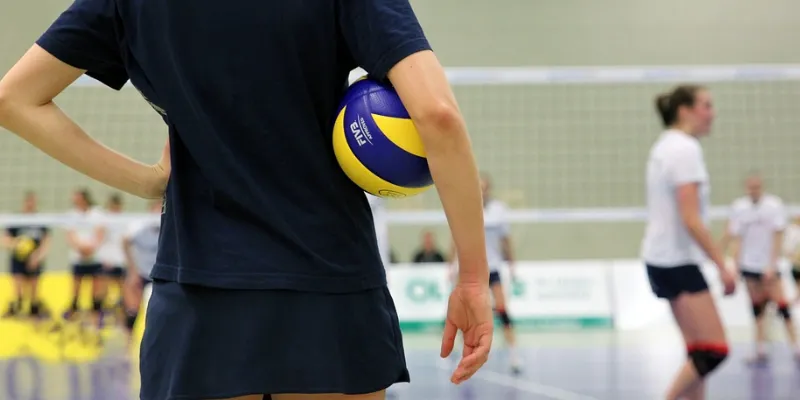Can You Forget How To Swim? What To Do?

Many people who start to swim at a young age eventually take a significant break from swimming. This absence from swimming could continue for several years under some circumstances. Can you forget how to swim? These same folks frequently worry that once they enter the water, they will forget all they have ever learned about swimming.
Table of Contents
Swimmers Never Forget How to Swim
The anatomy of the human brain is extremely intricate. We still don’t fully understand the workings of the human brain, particularly how memories are created and maintained. It is necessary to examine what is currently known about procedural memory in order to fully comprehend why swimmers never truly forget how to swim.
Memories are broadly classified into two categories:
- Small chunks of knowledge that are only momentarily stored—generally for a few seconds at most—are referred to as short-term memory.
- Long-term memory is the ability to retain information over an extended period of time. There is no time limit on how long these memories last.
Since swimming is primarily related to long-term memory, we will concentrate on it for the purposes of this article. Long-term memory is further broken down into two additional categories:
Information that is consciously remembered is known as explicit memory. Semantic memory and episodic memory both fall under this category.
Implicit Memory is the term used to describe information that is remembered automatically. Priming and procedural memory are examples of this type of memory.
Swimming is categorized as a procedural memory, so it is included in the category of implicit memory. The peculiarity of implicit memories—and consequently procedural memories—is that you cannot consciously recall this kind of knowledge. Since it primarily pertains to motor functions, this knowledge is typically difficult to articulate.
For some people, this is a challenging concept to comprehend. How do procedural memories even function if you are unable to explicitly recall them?
Automatic procedural memory retrieval occurs. You are spared from having to consider each step of the particular motor function you intend to carry out as a result. You simply do it instead.
Implicit memory and explicit memory are processed in different parts of the brain, as the infamous Patient H demonstrated.M. experiment.
For those of you who are unaware, H.Henry Molaison was identified by the initials M. Molaison had frequent, severe seizures that prevented him from carrying out even the most fundamental daily tasks. Molaison consented to a trial procedure to have a portion of his brain removed; this area of the brain was later given the name hippocampus; in order to treat these seizures. Although the seizures stopped, Molaison’s capacity for making new memories was severely compromised.
Explicit memory is a crucial function of the hippocampus, according to this study’s findings. Molaison’s continued capacity to learn new motor skills was the study’s most intriguing discovery, though. As a result, scientists learned that the brain creates memories in various ways, particularly implicit and explicit memories.
How To Do If You Haven’t Swam For Years?
With any activity involving water, safety must come first. People who haven’t been in the water for a while should be especially aware of this. It’s important to put the following measures into action in order to keep yourself safe and prevent any potential swimming mishaps. Even though your brain hasn’t lost the ability to swim, you still aren’t completely safe.
Swim In Shallow Waters
If you want to learn to swim again after a long break, you should start out in shallow water. After such a lengthy break, diving into deep water is not the best course of action.
Your body becomes accustomed to being surrounded by water once more by wading in shallow water. Later on, when you begin to master more difficult swimming techniques like treading water, for example, this mental comfort will pay off. Before pushing the boundaries of your swimming, you should make sure your mental health is in good shape.
Wading through the shallow water may seem tedious, but this small step will boost your confidence greatly. It gives you the chance to become more comfortable around the water and virtually eliminates the risk of drowning. The last thing you want to happen is to skip this step and freeze under pressure in deep water.

As a side note, it’s important to remember that wearing a personal flotation device is always an option if you have any remaining concerns about your ability to swim. In the end, it’s preferable to be safe than sorry.
Get A Third Party Perspective
Reaching out to your peers is also an important step in gradually getting back into swimming. You shouldn’t enter the water by yourself, especially if you don’t fully trust your swimming prowess. Knowing that there is a second person available to help if necessary gives you comfort. As you try to rekindle your old swimming abilities, crises of any kind could arise.
Third-party oversight has advantages beyond just security. Being close to peers has additional advantages for you.
One way they can help is by giving you constructive criticism on how to behave yourself better in the water. You won’t be able to see flaws that they do. It can be challenging to pinpoint your specific mistakes when you’re by yourself. Your peers can greatly simplify this process for you by directing you in the right direction.
Keeping one’s body in the horizontal plane while swimming is a common error that swimmers make after a prolonged break. These swimmers struggle to kick their legs out from under them because they lack confidence. The fact that they’re more vertically oriented reduces the efficiency of practically all swimming strokes. It is obvious where the problem in this scenario stems from an outside point of view. The solution, however, is much less clear when viewed from the perspective of the swimmer.
You might be tempted by your arrogance to try to solve everything on your own. Even though it’s a possibility, this isn’t the best choice available. Don’t let your pride interfere with your swimming experience, in other words! And, how long does it take to swim 500 meters?
How To Do If You Forgot How To Swim?
We’ve established that swimming is a skill that one can never truly lose. Although one’s performance may suffer after a break from swimming, one’s motor functions and skills will remain intact.
But, should you have an instance where you do “forget” how to swim/ “freeze” and seem to not be able to remember this motor function/skill- as can sometimes happen due to a traumatic event or fear/anxiety- here are the two things to keep in mind:
In the first instance, do not panic if this happens while you are in the water. Find something you can float on or use as a floatation device, or simply roll onto your back and float. And try your best to signal for assistance to a passing boater or swimmer.
Take things slowly and, above all, Be Safe if this happens after a break in swimming sessions or seasons and before getting in the water. You won’t resume where you left off. You can either [re]teach yourself (discussed in more detail later in this article) or enlist the help of a swim coach, trainer, or instructor.
The first recommendation for what to do if this occurs while you are in the water is fairly obvious and doesn’t call for any further explanation.
Remember that even though you may recall the motor function or skill of swimming, your level of performance won’t be the same. If not regularly used, muscles shrink or wither. As soon as three weeks pass without activity, this happens. Inactivity will cause a decrease in cardio fitness levels as well, and this decline will start to occur within a few days.
Developing strength in the primary muscles/muscle groups used (core abs, glutes, hamstrings, shoulders, and upper back) while on land will help you in the water when you do get back in. You should also start in shallow water and practice fundamentals while reacclimating to the water if you have “forgotten” how to swim or “froze” and can’t seem to remember how to swim. Additionally, as you acclimate to the water, don’t be afraid to use floatation devices or swim aids. In order to learn the fundamentals, you can always enlist the help of a swim coach, trainer, or instructor.
Can Children Lose Their Swimming Skills?
Kids can lose their swimming skills because they are still learning, so it is completely normal for them to do so in between swim lessons or seasons. While it is perfectly normal for children to lose their swimming skills, especially during breaks in their swimming lessons, the inability to remember the information required to perform this motor function or skill can occasionally be brought on by a lack of confidence or fear or anxiety—all of which can impair one’s ability to learn, retain, and/or recall information, especially at a young age.
It is completely normal for them to have trouble remembering, whether it is because their brains are still developing and they are just starting to learn, or whether it is due to fear, anxiety, or a lack of confidence. The motor functions and skills can also be quickly retaught and improved upon with patience and through developing trust in the water, allowing neural pathways to be created and stored in their implicit (procedural) memory.
Are Most People Incapable Of Swimming?
It is safe to assume that the majority of people do not know how to swim, as statistics show that more than half of people in the world are incapable of swimming. Some will blame fear, while others will blame socioeconomics, for the lack of swimming prowess.
Or maybe it’s a combination of socioeconomic factors and fear. Let’s look at some of the available statistics in either case.
According to studies, drowning is the third most common reason for unintentional injury fatalities. Around 236,000 people drown each year, according to the World Health Organization (WHO). These figures support the idea that most people are not proficient swimmers.
Women are more likely than men to be unable to swim independently. While 6 out of 10 men can swim, only 1 out of 3 women can.
Statistics and studies also indicate that people who need assistance to swim are more common in low- and middle-income areas than in high-income ones. 72% of adults in low-income areas can’t swim independently. 62% of adults in middle-income areas are unable to swim independently. Furthermore, only 24% of adults in high-income areas can’t swim on their own, while 76% of people in low- and middle-income areas can.
Conclusion
Once someone has practiced this complex skill enough times to master it, they cannot forget how to swim. A procedural memory for swimming is stored in the human brain. Long-term and capable of implicit recollection even after a long period of inactivity, this memory type.







